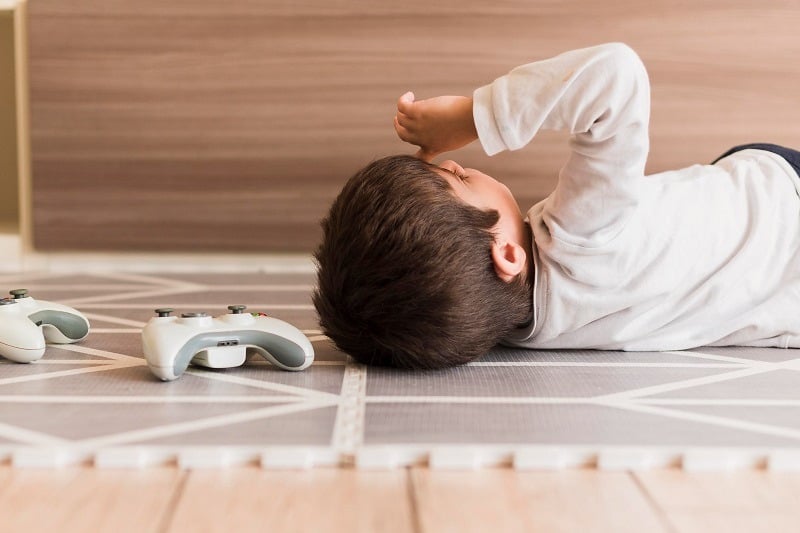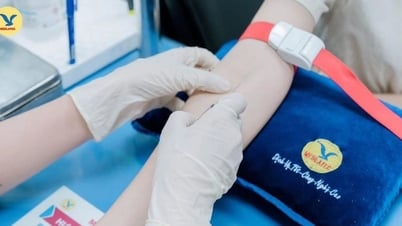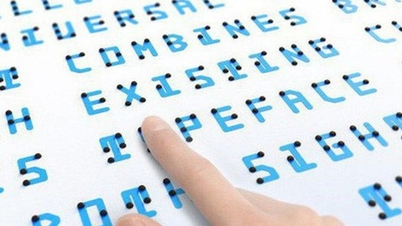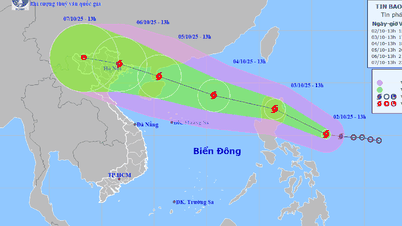Through in-depth examination at Medlatec General Hospital, the child was diagnosed with partial onset epilepsy that turned into bilateral tonic and convulsions.
 |
| Illustration photo. |
Doctors warn that epilepsy is a chronic neurological disease. If not detected and treated promptly, it can seriously affect the patient's health, daily life and psychology.
Patient NBM (16 years old, residing in Phu Tho ) has suddenly fallen three times in the past year, losing consciousness for unknown reasons. According to the family, the most recent time, M. suddenly lost consciousness, his eyes and head turned quickly to the left, his eyeballs rolled back, his whole body stiffened, causing him to fall to the floor, then he had a seizure lasting about 1-2 minutes.
After the attack, the patient gradually regained consciousness but could not remember anything that had happened before. He was immediately taken to Medlatec General Hospital for examination and to find the cause.
At the hospital, electroencephalogram results showed paroxysmal activity in the Theta frequency band, dominant in the right hemisphere and tending to spread to both hemispheres. Magnetic resonance imaging (MRI) of the brain detected a few scattered demyelinating nodules in the cerebellar region.
Blood tests, electrocardiogram, echocardiogram and Holter ECG did not show any dangerous abnormalities. After synthesizing the examination results, the doctors concluded that the patient had partial onset epilepsy that turned into bilateral tonic and convulsions.
The patient was prescribed anticonvulsants for outpatient treatment and advised to limit activities that pose a risk of falling or being unsafe, such as climbing, swimming, and long-distance cycling.
According to neurologists, epilepsy is a chronic neurological disorder that occurs when nerve cells in the brain function abnormally, causing recurring seizures.
The disease can occur at any age, but children and adolescents are the most susceptible. If not detected and treated properly, epilepsy can lead to long-term consequences such as interrupted learning, psychological development, loss of confidence and difficulty in social integration.
The causes of epilepsy in children are very diverse, including genetic factors, congenital brain defects, traumatic brain injury, central nervous system infections, lack of oxygen during birth or sequelae after a stroke. However, there are also many cases where the specific cause cannot be determined.
Master, Doctor Bui Thi Thanh, a neurologist at Medlatec General Hospital, said that early detection of the disease plays a particularly important role in the treatment and control of epilepsy.
Doctors recommend that parents pay special attention to any transient but unusual symptoms in children, such as sudden falls or brief loss of consciousness; staring eyes, unresponsive for a few seconds; mild twitching of limbs or uncontrolled shaking of the whole body; repetitive behaviors such as chewing, lip smacking, and unintentional head turning. Some children may also experience brief seizures while sleeping, then wake up feeling unusually tired and lethargic.
In addition to monitoring clinical symptoms, in-depth medical examinations play a decisive role. Tests such as electroencephalograms, magnetic resonance imaging (MRI) of the brain, blood tests or cardiovascular evaluations help doctors determine the exact cause of seizures and rule out other diseases that can cause similar symptoms.
Many people still believe that epilepsy is an "incurable" disease, which leads to a mentality of giving up or seeking folk remedies such as herbal medicine, tobacco, folk tips...
In fact, epilepsy is a chronic disease that can be well controlled if detected early and treated properly. Common mistakes are stopping medication midway, arbitrarily changing the dosage, or not returning for check-ups on time, which not only reduces the effectiveness of treatment but also potentially causes the disease to progress more severely.
In some cases, parents confuse epileptic seizures with "febrile convulsions" or think their child just fainted temporarily, causing a delay in diagnosis and affecting the effectiveness of treatment.
Currently, there are many methods to help control epilepsy, including treatment with antiepileptic drugs as the basic treatment, surgical intervention (applied in some special cases), and diet (ketogenic diet).
Among them, using anti-epileptic drugs is the most effective and common measure, helping most patients control seizures and maintain a stable quality of life if they follow their doctor's instructions properly.
Early detection and treatment of epilepsy not only helps prevent traumatic seizures but also helps children maintain their education, develop psychologically and integrate into the community normally. This is the key for children to live healthy, confident and develop comprehensively.
Source: https://baodautu.vn/chu-quan-voi-con-co-giat-nhieu-tre-danh-mat-co-hoi-dieu-tri-benh-kip-thoi-d388245.html






































































































Comment (0)